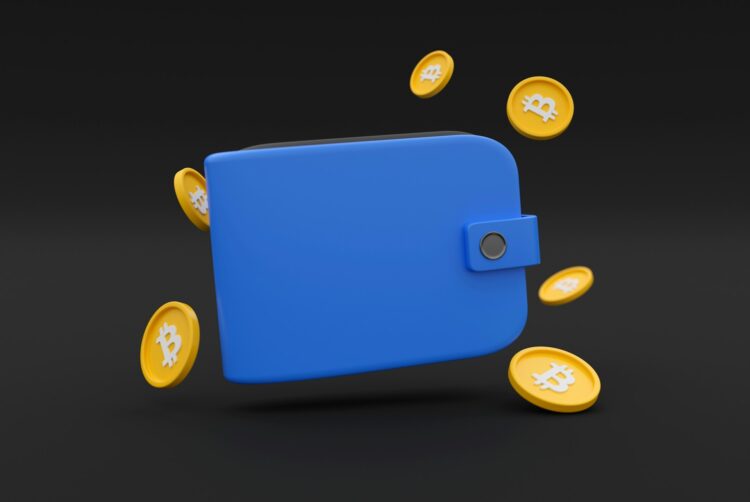Metamask is still recognized as the golden standard for crypto wallets. Users can hold, send, and receive Ethereum and ERC-20 tokens and manage multiple wallet addresses. Apart from Ethereum, it supports Binance Smart Chain, Fantom, Avalanche, Polygon, and numerous Ethereum L2 solutions.
Metamask also enables users to view and manage transaction histories, bridge tokens between blockchains directly, buy crypto with fiat, and perform near-instant token exchanges at current market prices.
Its security features include password protection, private key encryption, seed phrase backup and recovery, and support for hardware wallets. Metamask has also integrated security alerts from Blockaid to help users thwart malicious transactions.
Account abstraction: Ease of use, but no compromise on security
One feature that’s glaringly absent from Metamask is account abstraction (AA), which enables smart contracts to control wallet accounts. This function, in turn, enables automated actions, social recovery, and gasless transactions, making wallets more intuitive and flexible. AA wallets have significant advantages in terms of security, as relying exclusively on private keys to access an account comes with substantial risks. The user cannot access their account or funds if the keys are lost or stolen.
While Metamask users can carry out transactions directly on the blockchain, AA wallets such as Ambire close the gap between contract and Externally Owned Accounts (EOAs), which renders smart contract wallets more secure and simplifies the interface. Without AA, a user who wants to exchange USDC for ETH will first have to sign off on approval of USDC spending and then sign another transaction to approve the actual exchange. AA wallets make it possible to combine the two approval transactions, easing the user’s effort.
Ambire is making consistent efforts to streamline transactions and enhance functionality and security. The platform has gained prominence for its inimitable approach to managing on-chain interactions. It launched Ambire Wallet, its flagship product, in 2021, and the wallet now has more than 110,000 registered users. Wallet holders do not have to choose between security and ease of use. They only need an email and password to register and retrieve their account. The self-custody wallet is compatible with 2FA or a hardware wallet for extra security. Ambire is designed with an intuitive interface, while Metamask is a bit more challenging for beginners to navigate, especially for DeFi and cross-chain actions.
The essence of AA wallets: social recovery, MFA, and flexible gas fees
One notable feature of AA wallets is social recovery mechanisms. Instead of relying on a seed phrase, users can designate trusted contacts to help recover their wallet if they lose access. They can pay gas fees in tokens other than the network’s native coin. This flexibility is beneficial for people who don’t hold native assets on hand. The ability to bundle approvals and swaps reduces the overall gas fees.
AA wallet users can automate staking, recurring payments, and other actions, streamlining interactions for DeFi, NFT minting, etc. They can often set up accounts without needing seed phrases immediately, which improves the onboarding experience and makes Web3 more accessible.
Other advantages include sponsored transactions, multi-signature wallets by default, and session keys for games. As part of the onboarding process, DApp developers have the option to subsidize transaction fees, doing away with a major challenge for crypto laypersons. Currently, users have to create accounts with centralized exchanges, undergo KYC, buy Ethereum, and transfer it to their wallet. Only then can they try out the majority of DApps available.
As each AA wallet account is a smart contract, multi-sig wallets are available by default. Multiple parties or individuals must sign off on transactions before they can be executed. Users can implement this functionality without having to use an additional wallet contract. Metamask is designed as a single-signature wallet, which means the user has only one private key to authorize transactions. Metamask users would need to connect their wallets to third-party applications to benefit from the enhanced security that multi-sig functionality provides.
At present, blockchain game players must either give the game full control over their wallet or approve each action manually. AA wallets come with the option of a private burner key that allows automatic transactions only for a specific period and with one concrete DApp. This increases security by providing the DApp with only minimum privilege. The protection of the main account assets is guaranteed.
Metamask’s efforts to keep up
Metamask recognizes the benefits of account abstraction and admits it is key to ensuring a seamless onboarding experience for new users. Developers are attempting to rise to the challenge of using a legacy platform such as Metamask to alleviate access to account abstraction for users. Metamask Snaps are part of their effort to keep up with AA wallets in light of the latter’s impressive progress. This permissionless platform lets developers create custom features on top of the current Metamask infrastructure. Snaps can potentially support various account abstraction use cases, such as smart account integration and session keys.





